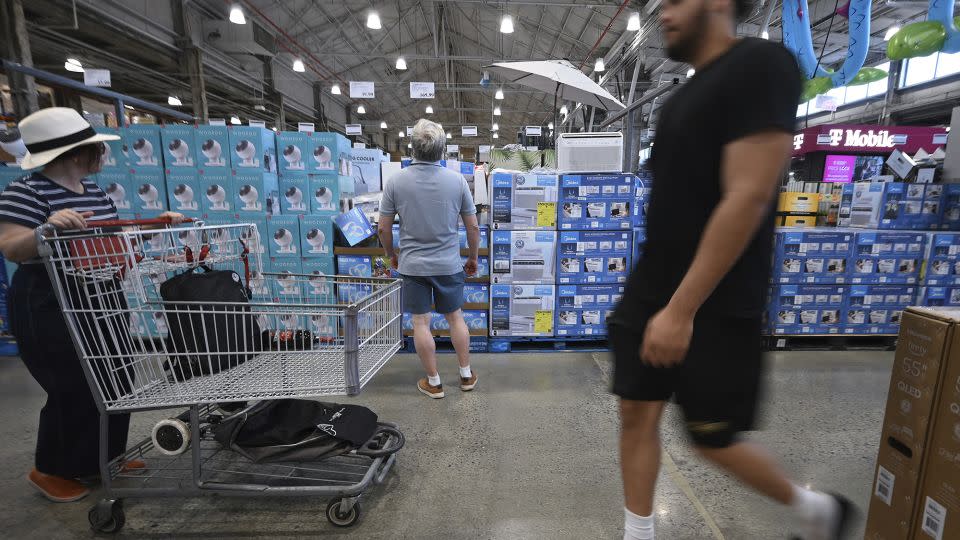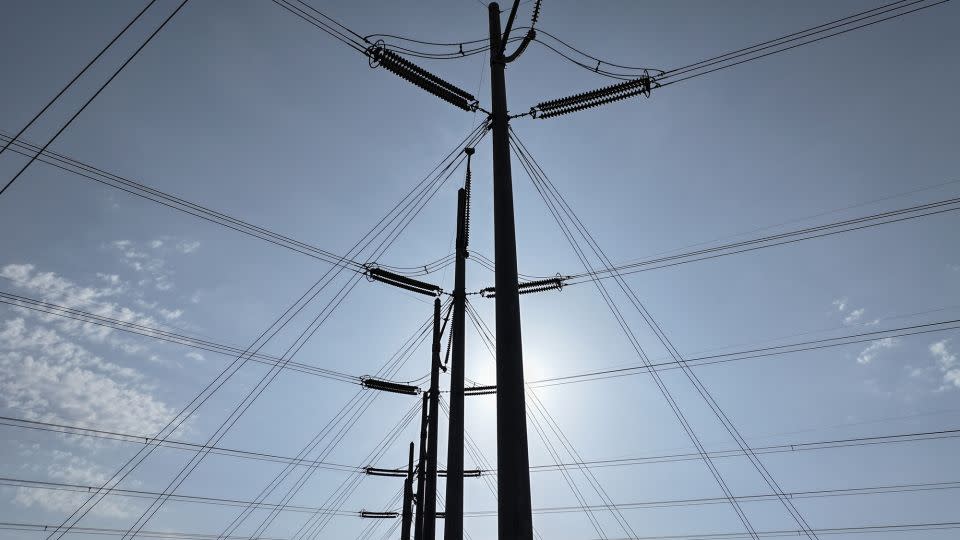As heat levels climb, so do power bills. Here’s how you can keep costs down
Emma Corrado tries to be conscious of her electricity usage, both as an aspiring biosystems engineer with a focus on natural resources and a self-proclaimed “broke college student” at the University of Wisconsin-Madison. But on the tail of a record-breaking heatwave that swept the Midwest and Northeast, she’s finding it difficult to keep costs down.
Corrado told CNN that the power bill for the two-bedroom apartment she shares with a roommate in Madison, Wisconsin, usually averages about $21 a month. Come summer, it spikes to $100— a jump she attributes to the cost of air conditioning.
To escape the sweltering temperatures, Corrado seeks refuge at her workplace rather than keeping the air conditioner running at home.
“I have the option to work remotely, but I tend not to because the building we work in has really good AC,” she said.
Americans’ power bills are expected to soar this summer, as heat waves have already begun baking parts of the country. But experts say there are ways to keep cool without breaking the bank – or at least to limit how much you’re shelling out each month.
Be strategic with your temperature setting
Do use your air conditioner or other systems to keep cool.
“Heat is the number one weather-related killer,” said Annie Carforo, climate justice campaigns manager for WE ACT for Environmental Justice, a community activist group. Carforo cited New York City’s 2024 Heat-Related Mortality Report, which found that the most likely location for heat-related deaths was inside homes that had no AC or had an AC that was not in use.
But be mindful of the temperature to which you set your air conditioner.

“We advise people to set your air conditioner to the highest temperature that you’re comfortable with,” said Jamie McShane, director of media relations for New York-based energy company Con Edison. “Every degree that you increase the thermostat lowers your cost.”
Carforo says that some Americans are keeping their air conditioners off entirely when they head out for the day. But keeping your AC off when you’re not home may actually result in higher bills later on.
According to the Department of Energy, the smaller the difference between the temperatures inside and outside your home, the lower your overall cooling bill will be.
The department says that setting your thermostat to a colder setting when you first turn on your AC may result in unnecessary expenses as it forces your AC to work harder to offset the outside heat.
For this reason, it recommends equipping your home with a programmable thermostat that can adjust the temperature according to a preset schedule.
“You can keep (your temperature) up to 78 and still be perfectly safe,” said Mark Wolfe, the executive director of the National Energy Assistance Directors Association, but he advises against making the change abruptly. Instead, he recommends gradually upping the thermostat by one degree every couple of days to acclimate to the new temperature.
Invest in your home’s energy efficiency
Wolfe anticipates that Americans may need to spend more on their electricity bill as climate change makes for hotter Septembers. One long-term solution is making sure your home’s cooling system is up to date.
“Especially if it’s an old system, replacing it might be the better strategy than fixing it,” he said.

One way to gauge your cooling system’s efficiency is by looking at your AC unit’s seasonal energy efficiency ratio, or SEER rating. A higher rating indicates lower energy consumption levels and, in turn, lower costs of cooling. Upgrading from a SEER 10 unit to a SEER 14 could cut costs by 20%.
But overhauling an existing cooling system can be pricey. That’s why Wolfe encourages getting in touch with your local utility provider and taking advantage of available rebate programs.
“Some of these rebate programs are better than others, but they all make a difference. They all want to encourage you to make these improvements,” he said. “If you buy a high efficiency furnace, if you buy a heat pump, if you install insulation, they provide subsidies to help you do that.”
McShane pointed to Con Edison’s own residential rebate programs, which offer New Yorkers living in the Bronx, Brooklyn, Manhattan, Queens and Westchester up to $4,000 to get insulation professionally installed.
“You can rail against it, but you can’t stop it. Temperatures are continuing to rise,” Wolfe said. “What we can do is look at how we use energy and manage it better.”
For more CNN news and newsletters create an account at CNN.com

 Yahoo Finance
Yahoo Finance 